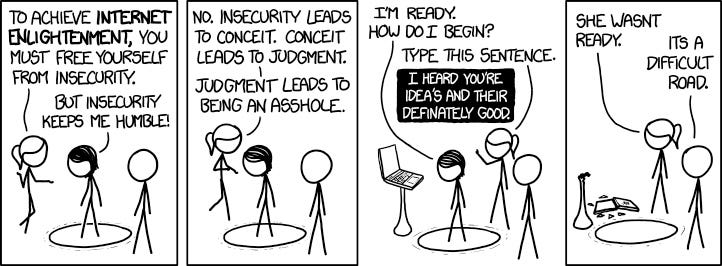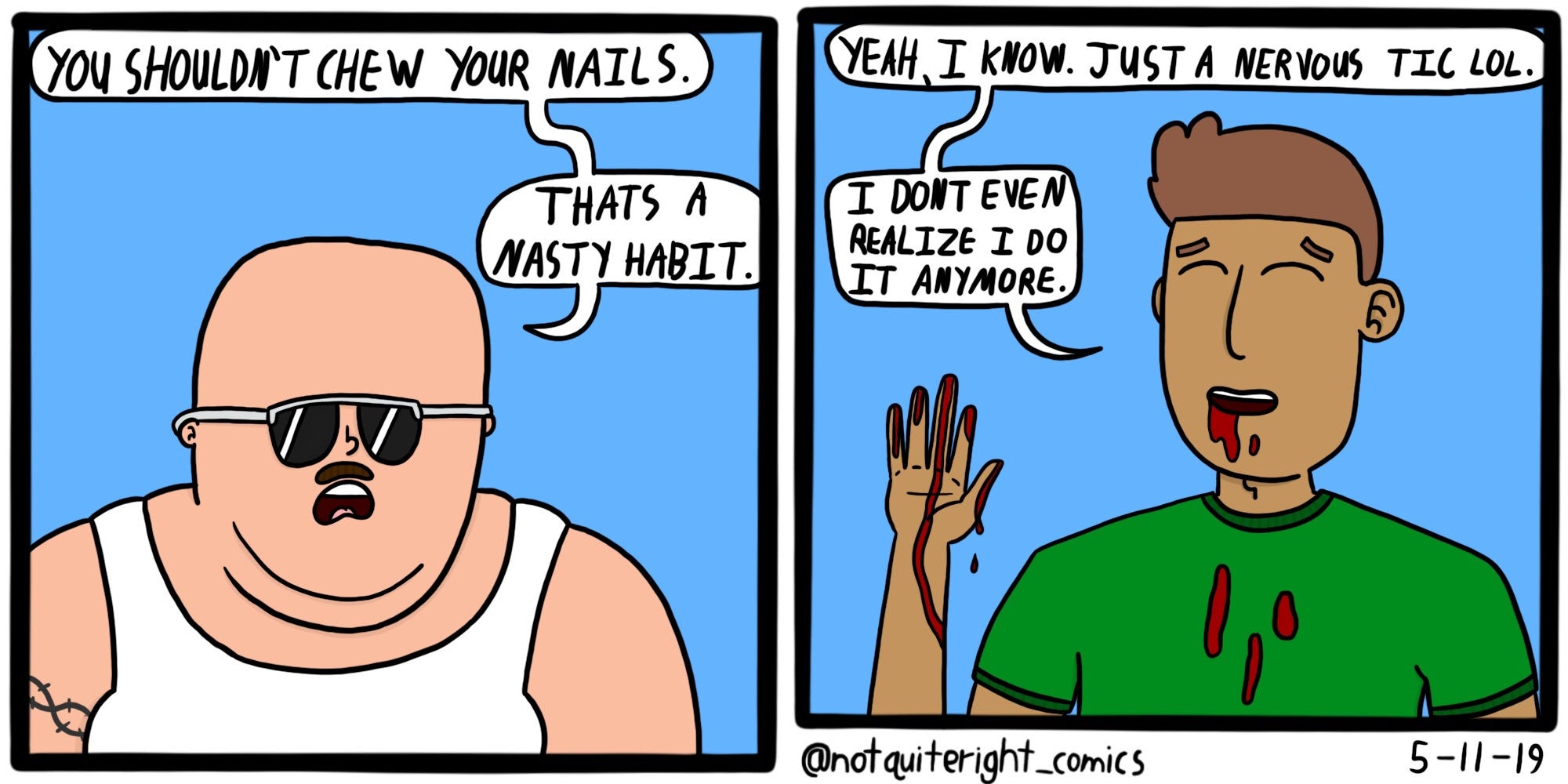After teaching hundreds of professionals to create breakthrough habits, I’ve come to believe two things:
- There is no one-size-fits all roadmap to success.
- Most people never activate this one powerful skill of advancing financially and socially.
That skill and how you ultimately define success are both determined by your human operating system. What you see when you look in the mirror is not all there is to you. That’s just your body. Your hardware. Then there are the intangible thought processes of your mind. Your software.
The body and mind form a complex relationship of behaviors known as the human operating system (HOS).
Using the HOS as a mental model and learning framework, I’d like to illustrate how to upgrade your internal relationship with yourself and how to determine if an obsolete mindset is keeping you from achieving things you want in life.
Here’s what you already know…
Each year, Americans spend millions of dollars for upgrades from Apple, Microsoft and any other provider selling new hardware or software.
Why are people hungry for upgrades? Because the value of increased stability, benefits and power are obvious to consumers and the companies that continue to offer them.
When you hear about upgrade, you think hardware and software products you have to purchase to own. s as hardware and software you have to buy or get. Yet you’re born with a biological operating system inside of you. How often does it get upgraded?
The good news is you don’t need tech support and you don’t have to spend a dime to upgrade your HOS. This is what makes your HOS so evolved. It is the basis for who you are, how you feel, and what you do. And it can grow and stretch like the limbs of a tree. Growth is a choice you get to make.
Choice is a core to your functionality. You are designed to execute choices just like a computer executes commands. Computers are actually built in your image, which helps you use them effectively.

Right now your heart beats, your lungs operate, your senses tingle, all on autopilot simply because you’re alive. Similarly, when you boot a computer, it has dozens of programs automatically running in the background. And like any other system, you are susceptible to bugs, influenced by viruses and have the ability to upgrade. Yet you are more advanced than any computer ever created because you can do all these things at will.
Upgrade
Existentially, an upgrade is about the expansion of possibilities. When you install computer upgrades, you increase what that device is capable of.
To start expanding your possibilities, you have to know what you want and that is where many people get stuck. You will never install a new application on your mobile device if you don’t know it exists.
Similarly, upgrading your possibilities requires you to be aware of what’s available. That means you need two things before you can even begin to upgrade your life: exposure and desire. Focus on your benefits and where to find them.
There are endless ways to expose yourself to new possibilities. The internet is a great start, so are your advisors and mentors. Most cities have meetup groups, clubs and organizations committed to exploring your interests.
That brings us to desire, a catch-all term for all your wants and needs. You can carve out new possibilities by tuning into:
A: What skills or behaviors do you desire?
B: What pain point do you want to relieve?
You can have all the skills and resources in the world but when you struggle to have clearly articulated desires, true satisfaction becomes elusive.
Ready to upgrade?
1. Answer the questions above. Write them down if you’re feeling more excellent.
2. Expose yourself to people and stories who have done these things.
You’ll quickly build the minimum requirements for the lifestyle you want.
That’s when you’re ready to begin the installation process.

Create New Habits
The secret to upgrading your personal H.OS is creating habits. Here we get to think of habits as a “program,” or series of choices that happen automatically. The more you practice, the more effortless your results.
Some habits are good for you — they nurture your system and forward your goals, while others habits are toxic and stunt your growth. All habits are formed or broken by repeating actions until they are near instinctive.
With the awareness of your software mind and hardware body, you can manipulate your HOS into creating habits that are a net upgrade to your lifestyle. In other words, you create good habits that promote wellness and satisfaction to you and others.
The Habit Maker is a physical experiment my students use to break free of bad habits and create results they truly desire.
Here’s how it works:
- Pick a start date and an end date 30 days apart.
- Choose an upgrade (see section above).
- Create an action that activates your upgrade.
- Carry out the action for 30-consecutive days. Start over if you miss a day.
Actions don’t have to be complex, but they should address your issues and desires.
Here’s an example:
Jason had a habit of rubbing his coworkers the wrong way. He believed his communication style was too direct and his coworkers were too emotional.
Listening to his case, I could see Jason wanted a better rapport with colleagues and we used that desire to explore the possibilities he could create.
The upgrade he decided on is “direct communication that people feel good about.”
Jason was already using direct communication so I told him to ask “How does that sound to you?” whenever he gave someone a task or feedback.
When the Habit Maker started, Jason worried he would have to field emotional outbursts but after a few days, something else began to take shape.
“Whenever I ask the follow up question, we get to clear up any miscommunication so every gets on the same page faster.”
That’s an upgrade.
Often, as in this story, there is a bug that needs to be fixed before you can upgrade. A bug is any behavior that produces unintended results. They’re not only frustrating, they waste time and energy. In this example, Jason had a bug called assumptions.
He assumed his intentions and desires were clear because he is a direct communicator and that’s what rubbed them the wrong way.
This was a bug because Jason actually wanted. A result that felt better for him as well as his colleagues.
Bugs can have a damaging impact on your career and personal relationships. The answer to a bug is a fix that addresses the issue head on.
In the above example, the fix I offered was a simple questions that confirms communication which minimized the impact of Jason’s assumptions.
Perhaps the most amazing facet of the human operating system is that there’s no known limit to the number of upgrades you can create in your mind or body connection.
This means that your career success, the amount of money you make, even the level of impact you have on the people who matter is infinitely expandable.
Your operating system is a relationship you have with yourself. That primary connection drives every other relationship you create personally and professionally.
Social skills are the tools used to create relationships and not all of them are beneficial.
Toxic relationships that create shame, fear and abuse are common. The belief that a man’s value is tied to his income and material gain is toxic, yet widely promoted in popular culture. Such ideas “program” your H.OS with a relationship to money that isn’t nurturing.
Even as the collective conversation around masculinity recognizes the need for healthier interactions, social habits remain deeply rooted in creating toxic relationships.
Take Charge of Your Programming
The gift of knowing your habits are programmable allows you to take control of the results they create. This is especially apparent in your relationships with colleagues, family and friends.
How you relate to the connections in your life determine your overall success and satisfaction. When you relate better, you enjoy your colleagues and career more as well.
When you relate better, you enjoy more money and wealth all because your HOS is a nonstop relationship. But when you’re used to relating the wrong way, it eventually turns into a bad habit.
The problem is not having great habits that turn the theory of healthy relating into a reality you’re in love with.
If you want to create new habits that help you relate to yourself and others better, start a practice in healthy, ethical relating.
Discover your ability to be present to your desires in a way that creates more satisfaction with every choice you make.
It’s about creating a lifestyle of more ease, pleasure and removing sources of stress and anxiety.